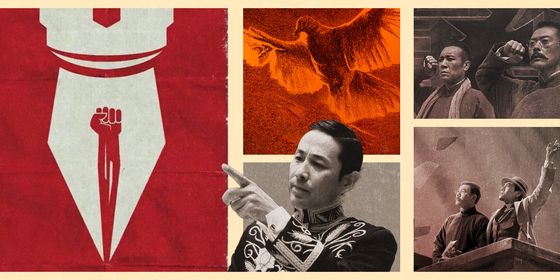Add hair loss to the stresses facing millennials
Several weeks after starting his job with tech company Tencent, 24-year-old Mr. Guo identified a problem: He was losing his hair. He now fears becoming as bald as colleagues who are decades his senior.
In recent years, millennials have lamented the diminishing hairlines of several childhood idols, such as film stars Daniel Wu and Takeshi Kaneshiro, but, many are facing the same issue themselves.
In the August 2017 white paper “Saving Hair,” Alibaba Health Information Technology showed that so-called “post-80s” and “post-90s” consumers were responsible for 38.5 and 36.1 percent, respectively, of purchases of hair-loss products on e-commerce sites Tmall and Taobao. In 2011, it was estimated that about 130 million Chinese men, or about one in four, suffered some form of hair loss or alopecia (the condition affects, to a lesser extent, a further 70 million women).
Meanwhile, the number of companies specializing in hair transplants has surged “from 60 in 2013 to over 1,000 in 2018,” Li Xingdong, president of Kafuring Hair Transplant Hospital, told the Economic Observer in September.
Though there is a traditional belief that a big forehead denotes intelligence, the younger generation is reluctant to accept looking older, and therefore less attractive, as a result of early-onset alopecia. As bald actor-director Xu Zheng said on TV show Star Talk in 2016, “If you are bald at 45, you look like an elegant gentleman…but if you’re bald at the age of 20, you look like a criminal, and your [hair-loss] treatment efforts are a joke to others.”
In November 2018, Chen Zhifang, director of the hair-transplant center at the Gansu No.2 People’s Hospital, told Pear Video that the center’s patient intake had increased by 20 percent in the last year. Half of these were post-90s individuals with high-pressure jobs and bad personal habits. Chen’s advice was to avoid eating takeout and burning the midnight oil.
For 26-year-old Li Tie, though, this is hardly practical: The young IT worker often has to stay at work until 9 p.m. or even midnight to meet deadlines. Li has tried various methods to keep his baldness at bay, including seven hours of hair transplant surgery that cost 40,000 RMB.
Some young sufferers, though, are coming to terms with the problem, and realizing there are much more important concerns than hair. As Yang Mao, another 26-year-old tech employee whose high-earning job has come at the expense of his hairline, told qq.com, “Between hair and making a living, I choose a living.”
The Bald Truth is a story from our issue, “Home Bound.” To read the entire issue, become a subscriber and receive the full magazine.













